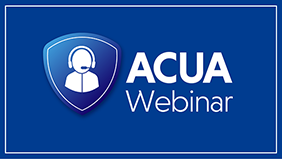Auditing Campus Bookstores and Related Operations



By Candice Lewis and Marie Jackson, ACUA Sidelines Committee
Being a college athletics fan means being a part of something bigger than yourself. It’s about finding community and being a part of a shared experience with your fellow fans for those few hours when time stops but the game clock ticks down. It means retracing your steps on campus, reminiscing about years past, and revisiting traditions that you never seem to outgrow.
In this new era of college athletics, schools build on those feelings of nostalgia and use technology and social media to provide all-access passes to our favorite teams. Sports marketing teams share behind-the-scenes looks at the newest facility upgrades. Student-athletes share their workouts, nutrition tips, and “outfit-of-the-day” videos. Coaches speak on podcasts and break down plays. As schools look to partner more with alumni and donors in the new age of Name, Image, and Likeness (NIL), it becomes increasingly important to craft positive fan experiences. But how can schools boost fan engagement and provide innovative experiences while balancing security and access to protect our student-athletes, staff, and facilities?
This article will highlight some best practices for both routine as well as game day security and access. Your internal audit function can help your athletics department assess their approach to evaluating safety and security, including utilizing campus and third-party experts when needed. Remember that a comprehensive security plan will include physical security, operational security, and cyber security. This article will focus on suggested best practices for physical and operational security for on-campus events and hopefully will get you thinking about how to leverage these concepts for off-campus and cyber-related processes and controls
Academic institutions hold the utmost responsibility to provide a safe environment for their students, staff, and fans. The very nature of campuses, which are generally accessible to the community-at-large, creates additional complexities when planning for security and limiting access to restricted spaces. Poor security practices can significantly impact brand reputation and increase the potential for legal liabilities, so thinking about safety measures is a critical exercise for colleges and universities.
On any given day, access management is crucial to ensuring the ongoing security of athletic facilities and the safety of those that use them. An internal audit review of access management could include:
Schools rely on security and facility staff to promote safe and secure spaces on their campuses. Here are some best practices to consider when evaluating security operations on your campus:
The following athletics venue and facility risks should be considered:
Remember to include adjacent spaces as appropriate. These could include practice facilities, mobile or attached operation centers, broadcast and production facilities, school-sponsored tailgates, and museums.
Gameday Preparations
The safety and security of athletic venues becomes even more critical on game day. As your university prepares to host thousands of visiting fans, opposing team players and coaches, and game day staff, it is essential to ensure appropriate controls are in place for a fun and safe game day experience. Whether you are preparing for an audit or assisting with a review, consider the following points. Note that this list is not exhaustive and each game situation is unique and may require modified or additional controls.
Game day preparations begin way before the first tip of the ball, whistle by the referee, or points scored by the home team. Key coordination and pre-game preparation considerations undertaken by Athletics often include:
Athletics personnel should conduct a pre-game security sweep to ensure the venue is secure before players, coaches, and fans enter the venue. Key activities include:
As fans start arriving the excitement starts to build, and the game day experience begins. Athletics personnel should make additional efforts to ensure a safe and secure environment.
Traffic management controls should be coordinated between the university and local authorities so that fans can arrive at the game on time and depart safely. Implement a game day traffic flow with clear traffic patterns, directions, and signage. Consider non- motorized traffic such as foot or bike. There may also be mass transit routes to accommodate shuttle buses from park and ride lots.
Gate security includes ensuring barriers or barricades, such as concrete posts, are strategically placed to prevent motorized traffic from entering restricted areas. Ensure all gates have security present and gates not in use are locked. Once the gates are open to the public, patrons may go through metal detectors and have bag checks performed by trained personnel to ensure unallowable or dangerous items are not brought into the venue. Consider implementing a clear bag policy to enhance and ease the bag check process.
Field/court and locker-room security is necessary to keep coaches and student athletes safe. Consider using a credentialing process for field/court and locker room access that prevents unauthorized individuals from entering the areas. Security personnel should be positioned at all entry points to field/court to prevent unauthorized access and respond to situations as they arise.
Police/Security/EMS personnel should beproperly stationed at key locations throughout the venue to provide safety and assist patrons, act as a crime deterrent, and have access to resources as needed. They should provide on-going game day security sweeps.
Camera coverage is beneficial in key areas such as parking lots, seating areas, and concourses can help ensure a safe and secure game day environment and assist command centers and security personnel.
After the game ends and fans are exiting the venue, there is still work to be done.
Rowdy fans or court/field celebrations can happen, especially during rivalry games. In the heat of the moment, fans can get overly excited and take actions such as court/field storming, which could put the safety of players, coaches, and fans at risk. To prepare for this, Universities should educate fans on the consequences, such as fines/penalties, of storming the court/field. There should be an emergency plan that includes standard emergency response codes (e.g., code blue), personnel, and action to be taken.
After the game has concluded and everyone has left the venue it is important for key personnel to hold an official post-game debrief to determine what went well and what didn’t. Lessons learned from this debrief should be implemented at future events to enhance the game day experience for everyone.
The ACUA Sidelines Committee hopes this article provides valuable insights into best practices for routine and game day security and access. As you plan future engagements, consider applying these principles to other on-campus events and event planning. Embracing a proactive and collaborative approach to reviewing and updating security and access protocols is a winning strategy!







